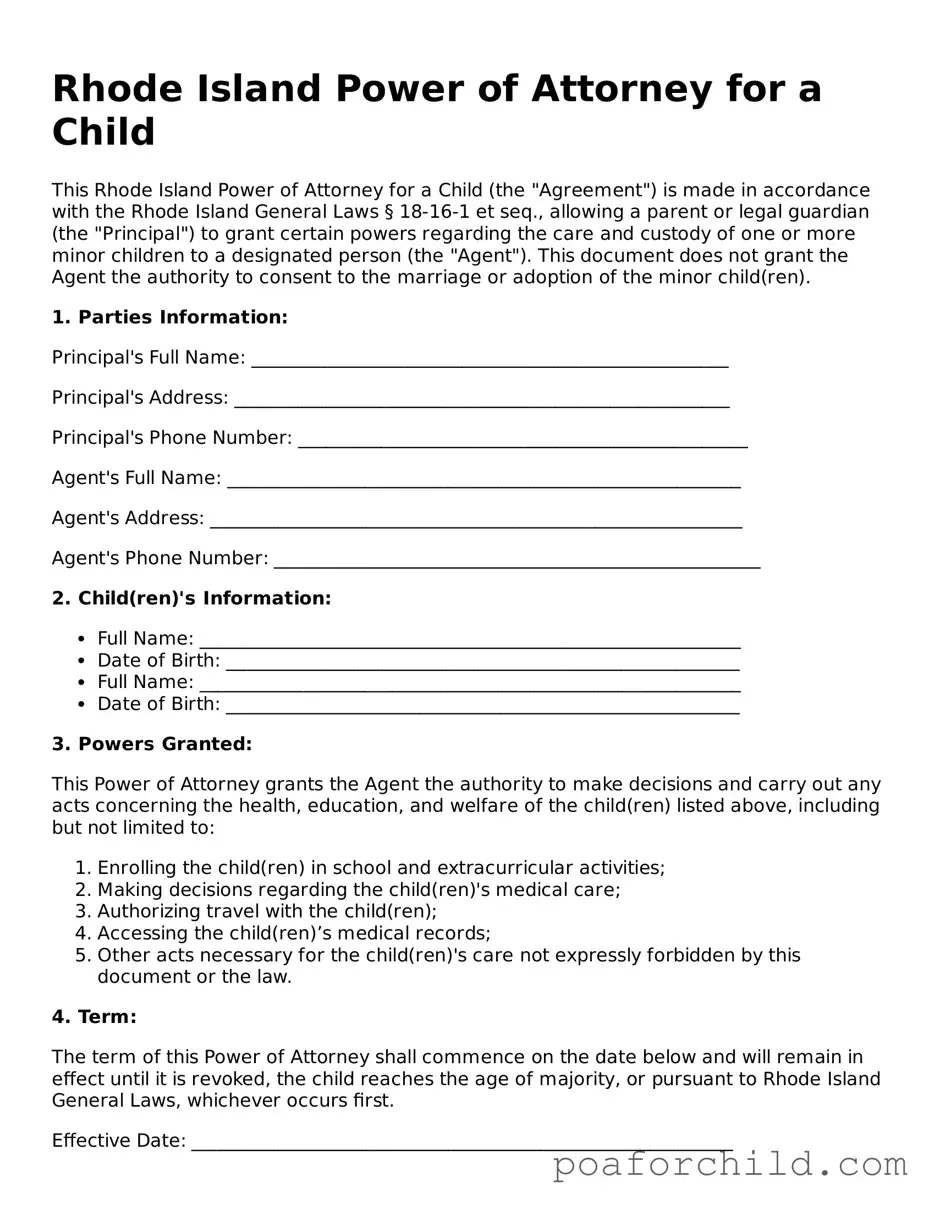Detailed Guide for Using Rhode Island Power of Attorney for a Child
Filling out a Power of Attorney (POA) for a child in Rhode Island is a crucial step in ensuring a trusted adult has the authority to make important decisions for the child in the absence of the parents. This legal document can grant an appointed guardian the power to make decisions regarding the child's education, healthcare, and other significant matters. The process of filling out this form may seem daunting, but by following a step-by-step guide, it can be completed accurately and effectively, safeguarding the welfare of the child.
- Begin by gathering all necessary information about the child, the parent(s), and the designated agent (the person receiving the power of attorney). This includes full names, addresses, and contact information.
- On the top section of the form, write the full name of the child for whom the Power of Attorney is being established.
- In the designated section, enter the name(s) of the parent(s) or current legal guardian(s) granting the power of attorney.
- Identify the person who will be appointed as the agent by writing their full name and providing their complete address in the specified area.
- Specify the powers being granted under the Power of Attorney. This may involve checking boxes next to relevant activities and rights or writing a detailed description in a provided space. Ensure it covers areas such as healthcare decisions, educational matters, and any other specific powers the grantor wishes to assign.
- State the effective date of the Power of Attorney and any conditions for its termination. Some forms require specifying an exact duration, while others may allow for an open-ended arrangement until explicitly revoked.
- Review the form to ensure that all required sections are completed accurately and that there is no contradictory information.
- Both the granting parent(s) or legal guardian(s) and the designated agent must sign and date the form in the presence of a notary public. Some forms may also require witnesses, in which case, ensure their signatures are also obtained.
- Take the completed form to a notary public for notarization. The notary will verify the identities of all signing parties, witness the signing, and apply their seal to the document, making it legally binding.
- After notarization, distribute copies of the form to relevant parties. The agent should receive the original signed form, and copies should be made for the parent(s), any involved healthcare providers, schools, or other institutions that may require it.
Once the Rhode Island Power of Attorney for a Child form is duly filled out and notarized, it stands as a legal document empowering the designated agent to act on behalf of the child in specified matters. It's a proactive measure to ensure that, in the absence or unavailability of the parent(s), there is a trusted individual authorized to make critical decisions for the child’s well-being. Retention of copies by all involved parties is essential for reference and to facilitate any necessary actions under the powers granted by the document.
